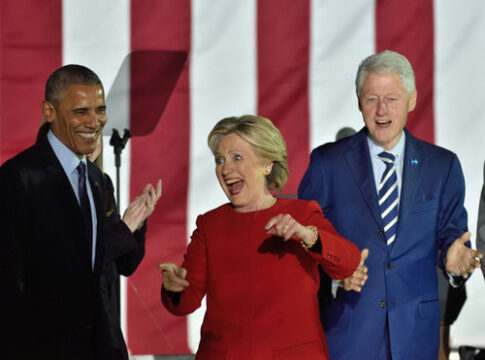Revelations of interference by Obama-era DOJ officials in halting FBI investigations into the Clinton Foundation have reignited the debate over political corruption.
Allegations of Political Interference
Recently declassified FBI memos have brought new attention to longstanding allegations against the Clinton Foundation.
These documents suggest that high-ranking officials in the Obama administration’s Department of Justice, including Andrew McCabe and Sally Yates, played a role in halting FBI investigations into the Foundation’s activities. The allegations center on claims that foreign governments and business interests donated to the Foundation in exchange for political favors during Hillary Clinton’s tenure as Secretary of State.
The revelations have sparked renewed public interest, with AG Pam Bondi and FBI Director Kash Patel bringing the issue back into the spotlight. Both have made public statements urging renewed scrutiny and accountability, emphasizing the need for transparency in government operations. Their actions have revived debates over the extent of political corruption and the influence of money in politics.
Timeline of Events
The controversy surrounding the Clinton Foundation dates back to Bill Clinton’s departure from the presidency in 2000. Over the years, the Clintons’ income surged, largely attributed to speaking fees and foundation donations.
During Hillary Clinton’s service as Secretary of State, alleged pay-to-play activities emerged as a significant concern. In 2015, the publication of “Clinton Cash” by Peter Schweizer further fueled suspicions, prompting media investigations and eventually FBI interest.
By 2016, several FBI field offices, including those in Little Rock, New York, Boston, and Nigeria, had launched investigations into the Foundation.
However, these efforts were reportedly thwarted by DOJ leadership, which ordered a halt to the probes. The declassification of memos and recent statements by Bondi and Patel have reignited these concerns, highlighting the need for accountability.
Impact of the Revelations
The latest developments have significant implications for public trust in government institutions and the nonprofit sector. In the short term, the renewed attention has led to calls for congressional hearings and further inquiry into the matter. Long-term, this could lead to increased scrutiny of political foundations and potential regulatory changes in the nonprofit sector.
The controversy also poses reputational risks for the Clintons and their Foundation. While the organization has been praised for its charitable work, the allegations of corruption and pay-to-play schemes have cast a shadow over its operations.
Additionally, the broader public may become more skeptical of politically connected charities, potentially affecting charitable giving patterns.
Expert Opinions and Analysis
Peter Schweizer, whose investigative work initially triggered the probes, maintains that the evidence indicates a pattern of pay-to-play activities. However, he acknowledges the challenges of proving quid pro quo without subpoena power.
Media outlets like The New York Times and The Washington Post have corroborated some findings but have not established criminal wrongdoing. Legal experts highlight the difficulty of proving corruption in political cases, particularly when investigations are halted before completion.
Diverse viewpoints persist, with supporters of the Clintons arguing that investigations are politically motivated and detractors calling for more rigorous scrutiny. The declassified memos provide direct evidence of DOJ intervention, yet the full context and motivations remain debated. As the story unfolds, its impact on political discourse and government accountability will continue to resonate.

